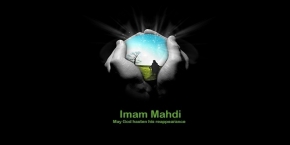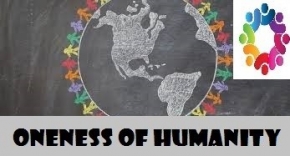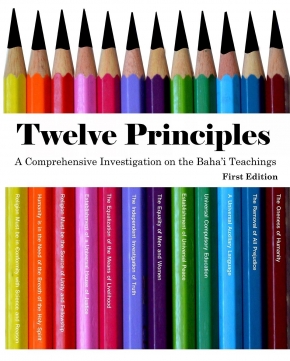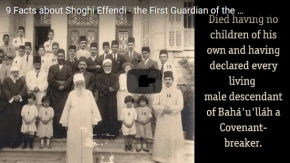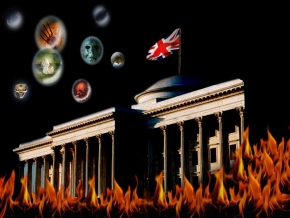
Articles (713)
Mahdi (PBUH), Ten Revolutions in One Revolution
Written by Super UserIntroduction
The report card of all the schools of thought throughout the history reveals many weak points. The majority of them concentrated on one aspect, but ignored other important aspects of humanity. All these ideologies were “self-centered”, meaning that they considered themselves as the central ideology and others (rest of mankind) as the surrounds, and most important of all, they had great claims; however, they made a poor performance.
By: Dennis James Rogers
I became a member of the Baha’i Faith in the early seventies while an undergraduate at a small private midwestern university. The initial attraction was to the social teachings of the Faith particularly the tenets about gender and racial equality. I had been raised as a Roman Catholic and had attended parochial and public schools, but was not very well versed in Biblical Christianity. Since the sixties and seventies were a time of social upheaval and turmoil, the Baha’i Faith seemed like a rational alternative to traditional religious dogma. My connection to the group was minimal during my college years but picked up after I graduated in 1973. I had "accepted " the Faith based on a conversation with a Baha’i teacher who asked me if I agreed with the basic nine tenets of the Faith, I told him I did and he said I was a Baha'i. This was quite ironic considering that one of the basic tenets is "independent investigation of the truth". I had not taken the time to investigate nor done a thorough examination of it's history or doctrine, something that I would not do until many years later while pursuing a role as a Baha’i apologetic.
MOHAMMED REZA ISFAHANI
The Holy Quran pays glorious tributes to the flawless character and high standards of ethics of the Holy Prophet of Islam (saw). At some places he has been lovingly called as "the best creation of Allah" and "the best model for humanity to emulate"; at other places, it is clarified that he is the last Prophet and consequently, the last Messenger from Allah. No prophet or messenger (from Allah) would follow him (saw).
The Baha’is unflinchingly claim that theirs is the only faith which preaches ‘Oneness of Humanity.’
A Comprehensive Investigation on the Baha’i Teachings
Written by Super UserBaha’ism is a creed whose origins go back to Iran in the nineteenth century. The most important teachings Baha’is use to establish the superiority of their beliefs over others, are twelve slogans and statements called the “Baha’i Principles” that they propagate with great pride. Baha’is believe these principles were the revelations of their prophet, Baha’u’llah. They believe that these teachings are novel and unique to the Baha’i creed and are the only source of salvation for mankind.
A tribute to Shoghi Effendi... on his death anniversary!
Written by Super UserNovember 4. On this date in 1957, Shoghi Effendi passed away suddenly at the age of 60 from the Asian flu in London where he was shopping for furniture and ornaments for the International Archives building. He died having violated Bahá'u'lláh's command in the Kitáb-i-Aqdas that "Unto everyone hath been enjoined the writing of a will." Having no children of his own and having declared every living male descendant of Bahá'u'lláh a Covenant-breaker, Shoghi Effendi left no eligible candidates for the office of Guardian, posing a serious problem given his assertion that "In this Dispensation, divine guidance flows on to us in this world after the Prophet’s ascension, through first the Master, and then the Guardians."
How Baha'i 'Offices of External Affairs' work for the UHJ?
Written by Super User
THE UNIVERSAL HOUSE OF JUSTICE
DEPARTMENT OF THE SECRETARIAT
2 May 2016
Transmitted by email
The National Spiritual Assemblies of the Baha’is of Australia, Austria, Brazil, Canada, France, Germany, India, Ireland, the Netherlands, New Zealand, Norway, South Africa, Spain, Sweden, Switzerland, the United Kingdom, and the United States
Dr Sa'eed Khan [was] a highly-respected physician...who had as a doctor treated the second widow of the Bab, and had for a lifetime known intimately both Babis [i.e. Bayanis] and Baha'is in Tehran and Hamadan. He says:
 English (UK)
English (UK)
 فارسی
فارسی 

